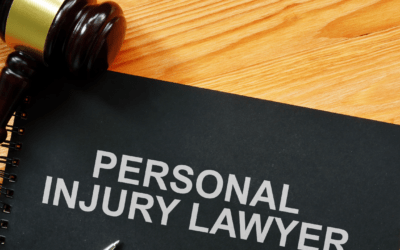Navigating the legal landscape can be daunting, especially when it comes to understanding the nuances between workers’ compensation and personal injury laws in Alpharetta, Georgia. Both realms govern workplace injuries, but with distinct purposes and procedures. Workers’ compensation provides benefits to employees injured on the job without needing to prove fault, while personal injury cases require establishing negligence for compensation. Delving into these divergent legal frameworks sheds light on the rights and responsibilities of employers and employees alike, offering crucial insights for those seeking recourse following a workplace incident.
Overview of Workers’ Compensation Laws in Alpharetta, Georgia
In Alpharetta, Georgia, workers’ compensation laws are designed to protect employees injured on the job. These laws ensure that workers have access to necessary medical treatment and financial support without having to prove employer fault. Workers’ compensation benefits may cover medical expenses, lost wages, vocational rehabilitation, and disability benefits, providing a crucial safety net for employees. Employers are required to carry workers’ comp insurance to comply with these regulations. Understanding the specific laws and procedures governing workers’ compensation in Alpharetta is essential for both employees and employers to navigate any claims smoothly. Consulting with legal experts specializing in workers’ compensation law can help ensure that all rights and obligations are upheld under Georgia’s workers’ compensation laws.
Overview of Personal Injury Laws in Alpharetta, Georgia
Personal injury laws in Alpharetta, Georgia, encompass a broad spectrum of legal principles aimed at providing recourse to individuals who have suffered harm due to the negligence or intentional actions of others. These laws cover a wide range of scenarios, including car accidents, slip and falls, medical malpractice, and more. In Alpharetta, personal injury cases typically hinge on the concept of negligence, requiring the injured party to demonstrate that the defendant failed to uphold their duty of care, thereby causing harm. Compensation in personal injury lawsuits may encompass medical expenses, lost wages, pain and suffering, and other damages resulting from the incident. Understanding the intricacies of personal injury laws in Alpharetta is crucial for individuals seeking justice and fair compensation in the aftermath of an injury-causing event.
Eligibility Criteria for Workers’ Compensation Benefits
In Alpharetta, Georgia, understanding the eligibility criteria for workers’ compensation benefits is crucial for employees injured on the job. To qualify for workers’ compensation, an employee must have sustained a work-related injury or illness while performing their job duties. The injury must be directly linked to the employment activities, and the employee must notify their employer within a specified timeframe. Additionally, the employer must have workers’ compensation insurance coverage to provide benefits to eligible employees. Meeting these criteria is essential for employees to receive medical treatment, wage replacement, and other benefits stipulated under workers’ compensation laws. By comprehending the eligibility requirements, employees can navigate the process effectively and seek the support they are entitled to under Alpharetta, Georgia’s workers’ compensation system.
Proving Negligence in Personal Injury Cases
Proving negligence in personal injury cases plays a pivotal role in seeking compensation for injuries sustained outside of the workplace in Alpharetta, Georgia. In such cases, the injured party must demonstrate that the defendant, typically another individual or entity, breached their duty of care, causing the injuries. This breach of duty may involve actions such as careless driving, unsafe premises, or medical malpractice. Establishing negligence often requires evidence showing the defendant’s actions fell below a reasonable standard of care, directly resulting in harm to the plaintiff. This burden of proof underscores the importance of thorough documentation, witness testimonies, and expert opinions to substantiate the claim. Navigating the complexities of proving negligence in personal injury cases necessitates a nuanced understanding of legal principles and precedents specific to Alpharetta, Georgia.
Compensation Structure in Workers’ Compensation vs. Personal Injury Cases
In Alpharetta, Georgia, understanding the differences in compensation structures between workers’ compensation and personal injury cases is crucial for individuals navigating legal proceedings following workplace injuries. Workers’ compensation typically offers benefits covering medical expenses, lost wages, and rehabilitation costs without the need to establish fault. Conversely, personal injury cases involve pursuing compensation through legal action by proving negligence on the part of another party. The compensation structure in workers’ compensation cases is often predetermined based on the severity of the injury and the individual’s wage level, providing a more streamlined process for receiving benefits. On the other hand, personal injury cases may result in varying compensation amounts determined through negotiation or court judgment, considering factors such as pain and suffering, loss of earning capacity, and emotional distress. Knowing these distinctions can help individuals make informed decisions when seeking compensation for workplace injuries in Alpharetta.
Medical Treatment Coverage under Workers’ Compensation and Personal Injury Laws
In Alpharetta, Georgia, understanding medical treatment coverage under workers’ compensation and personal injury laws is crucial for individuals navigating work-related injury claims. Workers’ compensation typically covers the cost of necessary medical treatment directly related to workplace injuries without requiring employees to pay out of pocket. This coverage often extends to doctor visits, hospital stays, surgeries, physical therapy, and prescription medications. On the other hand, personal injury laws may allow for compensation for medical expenses incurred due to injuries caused by another party’s negligence. However, in personal injury cases, the burden of proof regarding medical necessity and causation can be more complex. Knowing the distinctions between these coverage frameworks ensures that injured individuals receive appropriate medical care and reimbursement in compliance with Alpharetta’s legal regulations.
Time Limitations and Filing Procedures for Workers’ Compensation and Personal Injury Claims
Time limitations and filing procedures play a crucial role in workers’ compensation and personal injury claims in Alpharetta, Georgia. In workers’ compensation cases, injured employees must adhere to strict timelines for reporting their injuries to their employer to be eligible for benefits. Failure to report within the designated timeframe can result in the denial of claims. On the other hand, personal injury claims are subject to statutes of limitations, which determine the timeframe within which a lawsuit must be filed after an injury occurs. Understanding these time constraints is essential for claimants to protect their rights and pursue the compensation they deserve under the workers’ compensation laws and personal injury regulations in Alpharetta, Georgia.
Role of Legal Representation in Workers’ Compensation and Personal Injury Cases
Legal representation plays a pivotal role in both workers’ compensation and personal injury cases in Alpharetta, Georgia, ensuring individuals receive fair treatment and maximum benefits. In workers’ compensation claims, attorneys assist claimants with navigating complex paperwork, gathering evidence, and negotiating with insurance companies to obtain rightful compensation for medical expenses, lost wages, and disability benefits. Similarly, in personal injury cases, legal professionals advocate on behalf of injured individuals to establish liability, assess damages, and represent their interests in court proceedings. Skilled attorneys proficient in workers’ compensation law and personal injury regulations can provide invaluable guidance, strategic advice, and expert representation to help clients secure the compensation and justice they deserve in these challenging legal matters.
Conclusion: Key Takeaways on Navigating Workers’ Compensation and Personal Injury Laws in Alpharetta, Georgia
In conclusion, understanding the distinctions between workers’ compensation and personal injury laws in Alpharetta, Georgia is vital for individuals navigating workplace-related injuries. Workers’ compensation offers no-fault benefits to employees injured on the job, ensuring timely medical treatment and wage replacement without the need to establish negligence. On the other hand, personal injury cases require proving fault to seek compensation beyond medical expenses and lost wages, potentially including pain and suffering damages. By grasping the eligibility criteria, compensation structures, and filing procedures for each legal avenue, individuals can make informed decisions regarding their rights and obligations in the event of an injury. Consulting with legal professionals familiar with workers’ compensation and personal injury laws in Alpharetta can provide invaluable guidance and advocacy throughout the claims process to secure the rightful compensation and support for recovery.

